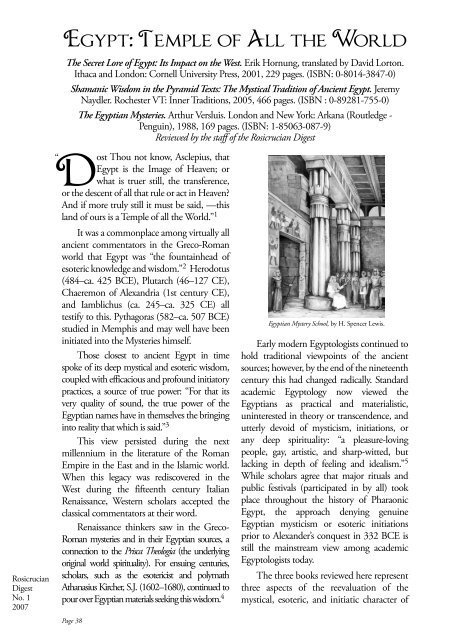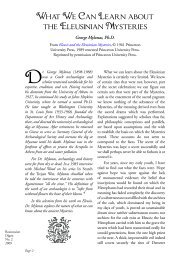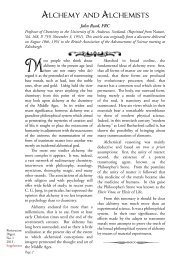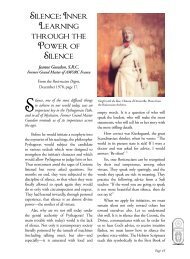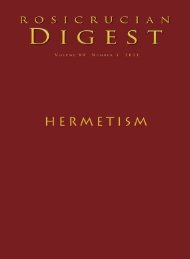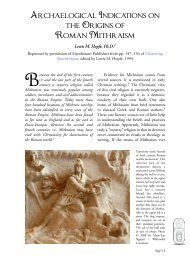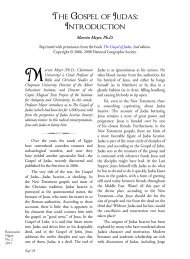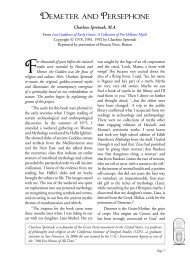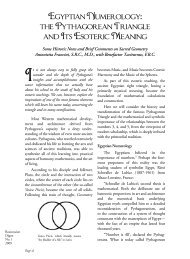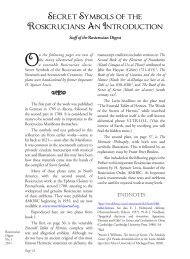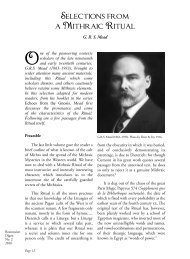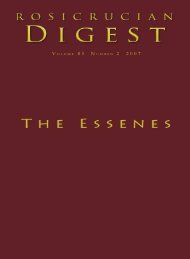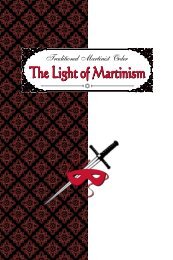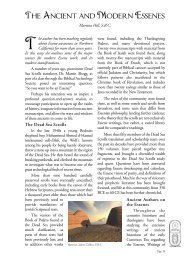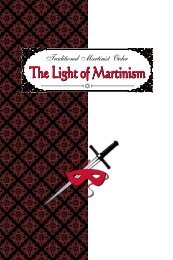Digest - Rosicrucian Order
Digest - Rosicrucian Order
Digest - Rosicrucian Order
Create successful ePaper yourself
Turn your PDF publications into a flip-book with our unique Google optimized e-Paper software.
The Secret Lore of Egypt: Its Impact on the West. Erik Hornung, translated by David Lorton.<br />
Ithaca and London: Cornell University Press, 2001, 229 pages. (ISBN: 0-8014-3847-0)<br />
Shamanic Wisdom in the Pyramid Texts: The Mystical Tradition of Ancient Egypt. Jeremy<br />
Naydler. Rochester VT: Inner Traditions, 2005, 466 pages. (ISBN : 0-89281-755-0)<br />
The Egyptian Mysteries. Arthur Versluis. London and New York: Arkana (Routledge -<br />
Penguin), 1988, 169 pages. (ISBN: 1-85063-087-9)<br />
Reviewed by the staff of the <strong>Rosicrucian</strong> <strong>Digest</strong><br />
<strong>Rosicrucian</strong><br />
<strong>Digest</strong><br />
No. 1<br />
2007<br />
“<br />
Dost Thou not know, Asclepius, that<br />
Egypt is the Image of Heaven; or<br />
what is truer still, the transference,<br />
or the descent of all that rule or act in Heaven?<br />
And if more truly still it must be said, —this<br />
land of ours is a Temple of all the World.” 1<br />
It was a commonplace among virtually all<br />
ancient commentators in the Greco-Roman<br />
world that Egypt was “the fountainhead of<br />
esoteric knowledge and wisdom.” 2 Herodotus<br />
(484–ca. 425 BCE), Plutarch (46–127 CE),<br />
Chaeremon of Alexandria (1st century CE),<br />
and Iamblichus (ca. 245–ca. 325 CE) all<br />
testify to this. Pythagoras (582–ca. 507 BCE)<br />
studied in Memphis and may well have been<br />
initiated into the Mysteries himself.<br />
Those closest to ancient Egypt in time<br />
spoke of its deep mystical and esoteric wisdom,<br />
coupled with efficacious and profound initiatory<br />
practices, a source of true power: “For that its<br />
very quality of sound, the true power of the<br />
Egyptian names have in themselves the bringing<br />
into reality that which is said.” 3<br />
This view persisted during the next<br />
millennium in the literature of the Roman<br />
Empire in the East and in the Islamic world.<br />
When this legacy was rediscovered in the<br />
West during the fifteenth century Italian<br />
Renaissance, Western scholars accepted the<br />
classical commentators at their word.<br />
Renaissance thinkers saw in the Greco-<br />
Roman mysteries and in their Egyptian sources, a<br />
connection to the Prisca Theologia (the underlying<br />
original world spirituality). For ensuing centuries,<br />
scholars, such as the esotericist and polymath<br />
Athanasius Kircher, S.J. (1602–1680), continued to<br />
pour over Egyptian materials seeking this wisdom. 4<br />
Page 38<br />
Egyptian Mystery School, by H. Spencer Lewis.<br />
Early modern Egyptologists continued to<br />
hold traditional viewpoints of the ancient<br />
sources; however, by the end of the nineteenth<br />
century this had changed radically. Standard<br />
academic Egyptology now viewed the<br />
Egyptians as practical and materialistic,<br />
uninterested in theory or transcendence, and<br />
utterly devoid of mysticism, initiations, or<br />
any deep spirituality: “a pleasure-loving<br />
people, gay, artistic, and sharp-witted, but<br />
lacking in depth of feeling and idealism.” 5<br />
While scholars agree that major rituals and<br />
public festivals (participated in by all) took<br />
place throughout the history of Pharaonic<br />
Egypt, the approach denying genuine<br />
Egyptian mysticism or esoteric initiations<br />
prior to Alexander’s conquest in 332 BCE is<br />
still the mainstream view among academic<br />
Egyptologists today.<br />
The three books reviewed here represent<br />
three aspects of the reevaluation of the<br />
mystical, esoteric, and initiatic character of


